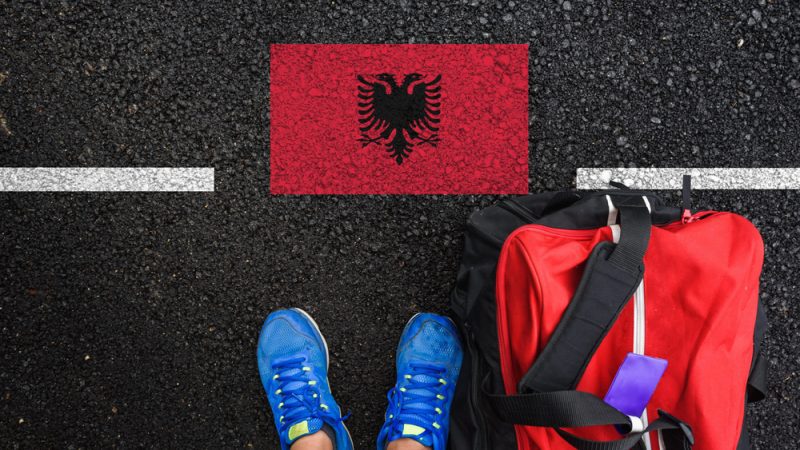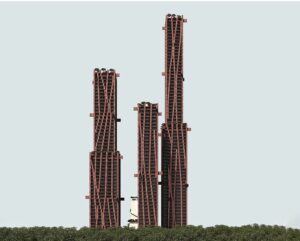Albanians form the third largest diaspora in the world, with some 30% of those born in the country now living outside its borders, according to data published by Forbes, as a tense situation between Albania, Europe, and the UK continues to simmer due to increased asylum flows.
The website ranked countries by the size of the diaspora in relation to the population, placing Albania third with some 1.2 million emigrants. This places them above countries such as Syria, Moldova, and Armenia.
The two countries pipping Albania to the post were Bosnia and Herzegovina with 34% of citizens now living abroad, and Guyana with 36.4%.
Migration poses a significant risk to Albania, with over half of its population wanting or planning to leave. In addition to that, the mass exodus of the young and educated has resulted in significant shortcomings in the labour sector, such as hospitality, tourism, manufacturing, and agriculture.
In addition, there are concerns that not enough people will be paying into the social security system, resulting in a deficit in the near future and problems paying pensions, welfare, and covering costs of healthcare and education.
But it is not just emigrants causing problems as waves of asylum seekers have been entering the EU for many years, with an uptick in numbers in the UK during 2022. At least 12,000 Albanians, mainly young men, have travelled to the UK so far this year, causing outrage among the British right-wing government and media who labelled them criminals and an “invasion”.
Young Albanians and other nationalities have purchased journeys from France to the UK by way of precarious dinghies operated by organised crime gangs that advertise on TikTok and Instagram. The going rate for transit is around GBP 3000 but can depend on the boat size and trip time. Many desperate asylum seekers take the debt with loan sharks or the traffickers themselves, and they then struggle to pay it back or end up ‘woking’ off the debt in illegal businesses.
Once they reach the shores of Britain, many apply for asylum. During the last year, over 50% have been approved in the first instance, with half of those who appealed rejections ultimately being granted as well.
While Albania is not at war and is considered a ‘safe country’, it is plagued by myriad issues. It is one of the poorest countries in Europe and struggles with corruption, issues with the justice system and the rule of law, organised crime, and infrastructure. As for founded asylum applications, they tend to include those fleeing the impact of crime and violence, blood feuds, forced marriages, loan sharks, and sex trafficking, to name but a few.
The country has low crime rates overall, but those who are victims often find it hard to get justice and end up feeling there is no choice but to leave.
Prime Minister Edi Rama has spoken out against the hateful rhetoric levied against Albanians in the British public discourse. He accused the British government of scapegoating Albanians “because it has gone down a blind alley with its new policy resulting from Brexit.”
“The fact there came no apology shows it was a calculated attack,” he added on Tuesday.
Rama said that visa liberalisation would help lower the number of people arriving illegally, but the U.K. government’s policy is “completely the reverse.”
Meanwhile, the British government has signed a deal with France to crack down on those trying to cross The Channel. “It is in the interests of the UK and French governments to work together to resolve this complex problem,” British Home Secretary Suella Braverman said in a statement after meeting her French counterpart Gérald Darman in Paris.
The deal will see the UK pay France more than €72 million over the next 12 months in return for France increasing coastal patrols by 40% and deploying additional officers. It would also see British officers stationed in France and greater use of surveillance technology, cameras, helicopters and the establishment of new migrant reception centres and surveillance centres.








